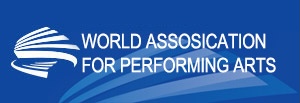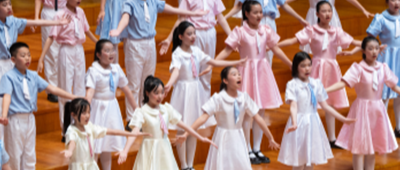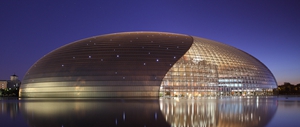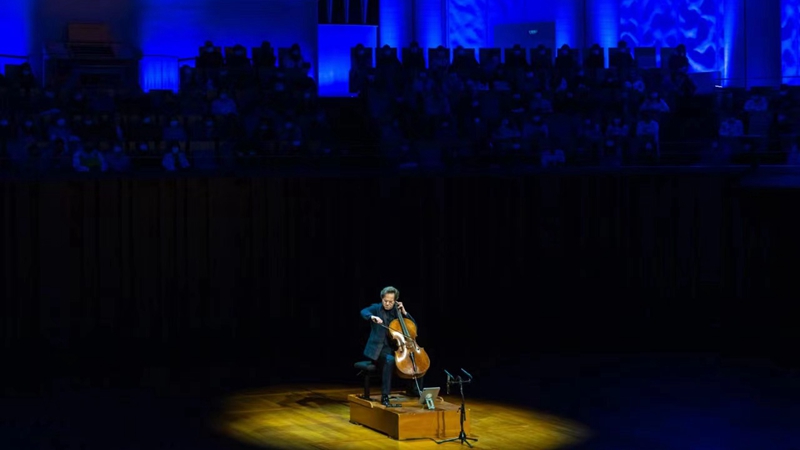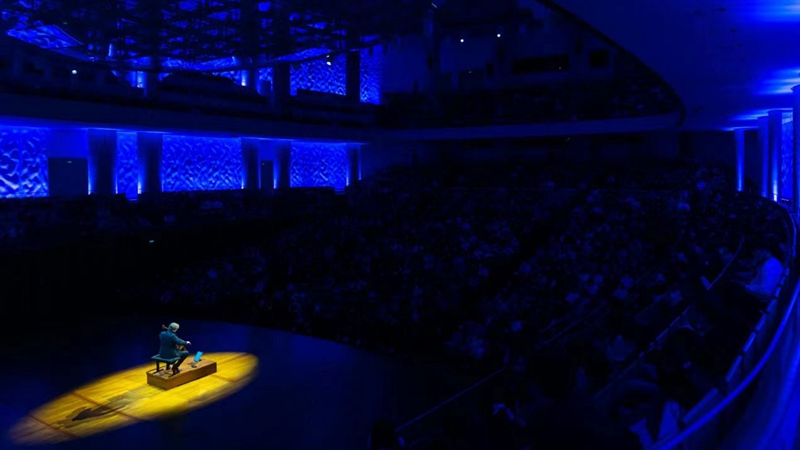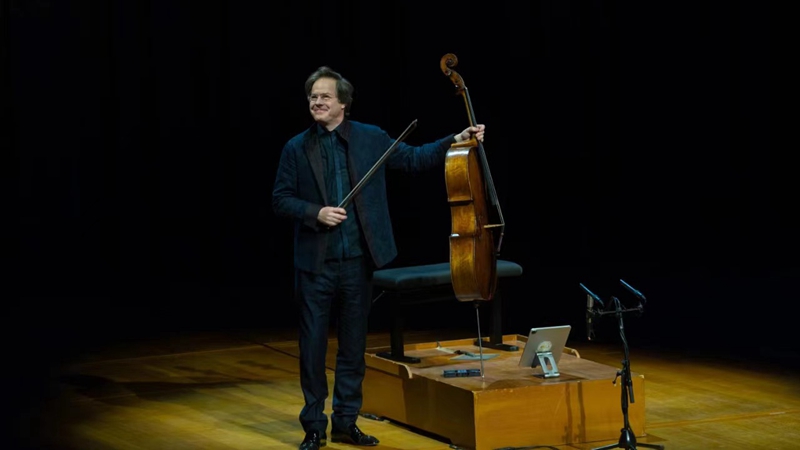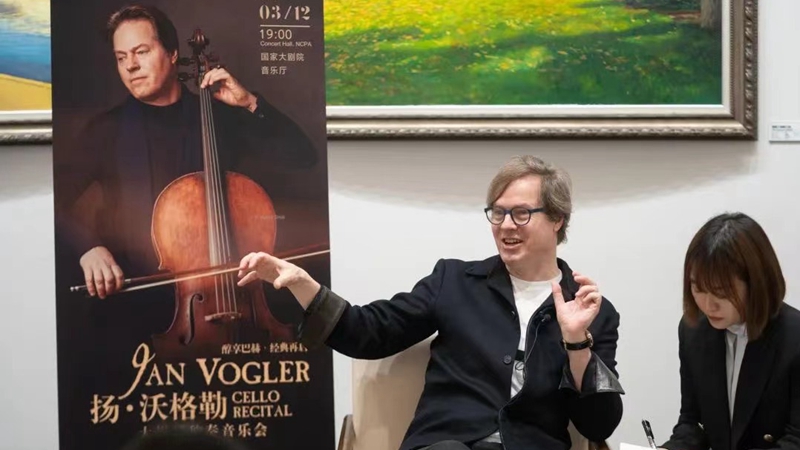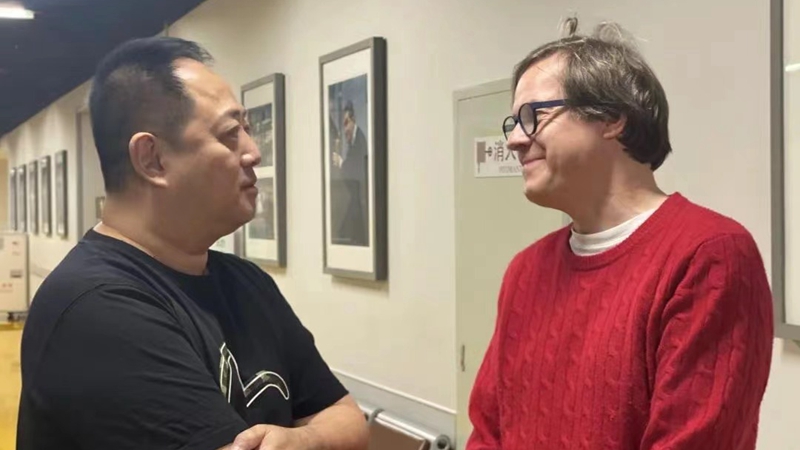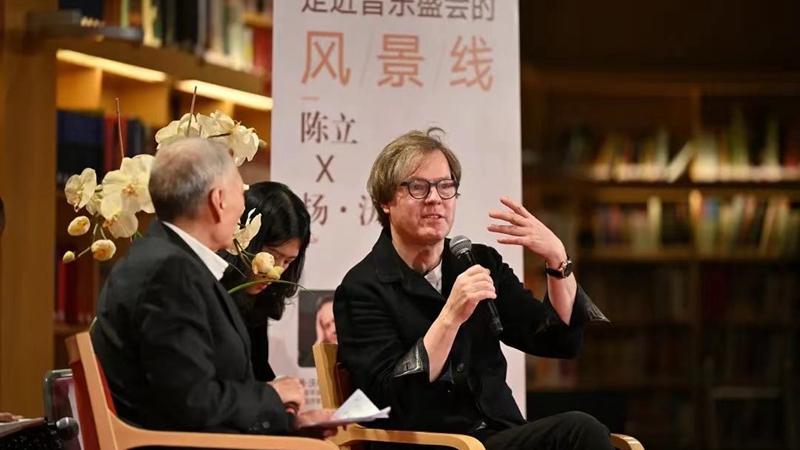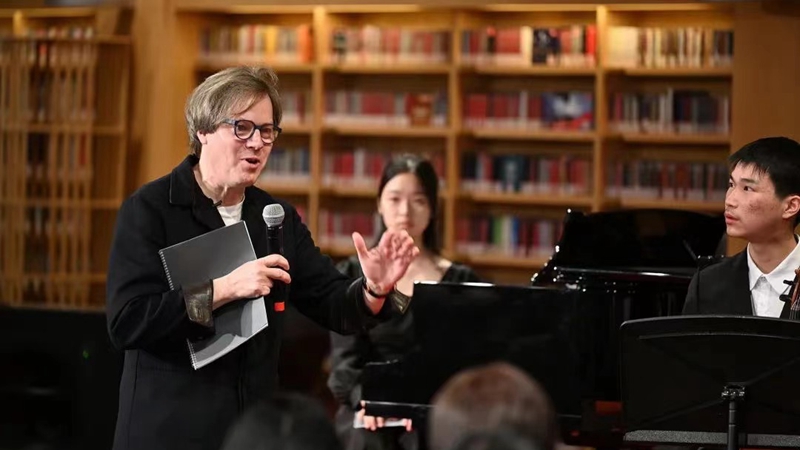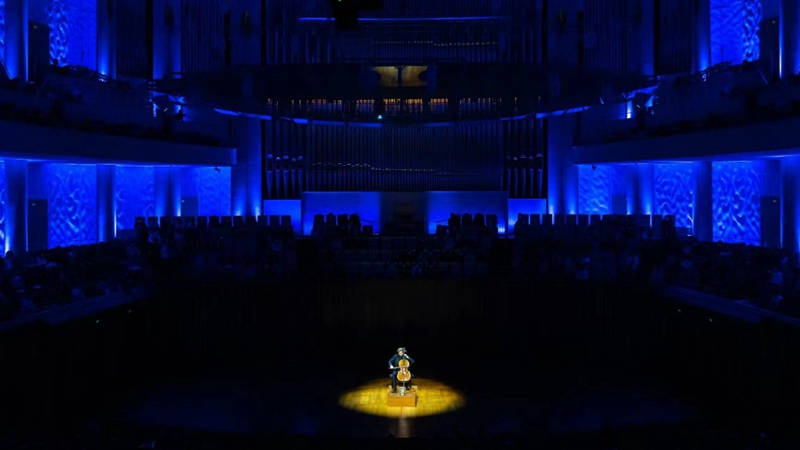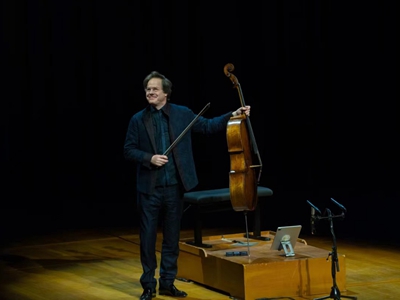After suddenly getting warmer, the weather has turned cold again in Beijing in March, which is still part of the early spring, but the NCPA Concert Hall brims over with hot music. On the night of March 12th, Jan Vogler, an internationally renowned cellist, Director of Dresden Music Festival, and Artistic Director of Moritzburg Festival, rendered the Baroque virtuoso J. S. Bach’s Cello Suites from start to finish at the NCPA Concert Hall. This is an important sign of foreign artists’ return to China in the post-epidemic era, and also marks NCPA’s passion for opening the door of culture and art to the outside world to deepen the exchanges between different civilizations.
The whole recital, which lasts three hours, is honoured as a “marathon” concert by insiders. The interpretation of all these suites hints at the performer’s possession of excellent virtuosity and great courage. What’s more, it is a hard-won music feast for the audience. When the last note exhaled slowly from the sound box of the cello along the bowstring and vanished into the dome of the concert hall, the audience gave their sincerest applause to the cellist from afar and to the night ablaze with the masterpiece.
J. S. Bach
Cello Suites was possibly composed between 1717 and 1723. More than a hundred years later, the Spanish cellist Pablo Casals discovered the music score of this masterpiece in a secondhand bookstore in Barcelona. After practice, he performed the masterpiece in public, bringing it to the attention of people, especially cellists. That night, Jan Vogler played the cello suites on a “Castelbarco Fo” cello made by Stradivari in 1707, a musical instrument almost coeval with the birth of J. S. Bach
Cello Suites.
As the familiar, colourful melody of the prelude was played on this ancient cello, the audience felt as if they had walked through the vast space and time together with the warm sound of the cello into the magnificent music world built by J. S. Bach, where they had a good taste of the inspiration and passion that the master musician injected into this instrument over three hundred years ago.
This was the first time that Jan Vogler had given a performance at NCPA. In an email interview before his first appearance at NCPA, he told us that he “had had the greatest admiration for NCPA, but he still did not have chance to visit it in person”. As the host, the NCPA certainly would not let the master down. Upon his arrival at the airport, we planned a variety of art exchange activities for him so that he could make an “in-depth visit” to NCPA.
On the morning of March 10th, Jan Vogler was interviewed by several media at NCPA and generously shared his feelings about his first trip to NCPA, as well as the story between J. S. Bach’s music and him. Jan Vogler said, “This is my first time to visit NCPA. I feel very happy. NCPA is a world-renowned palace of art and art display platform. It’s very exciting for me to be exposed to a different artistic atmosphere and culture here.”
When it came to this unprecedented masterpiece by J. S. Bach, Jan Vogler owed it to the efforts of many people that the musical composition had survived from earlier days. He said, “I owe it to the efforts of all my colleagues at NCPA that I was able to present this work to the audience on the stage of NCPA. Here, I’d like to express my gratitude to all of you.”
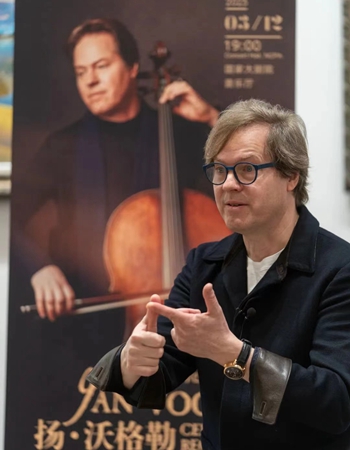
On the night of March 10th, Jan Vogler enjoyed Suzhou Pingtan Troupe’s Pingtan art performance themed the Four Great Classical Novels given to “glorify Ancestry and enrich Prosperity”. After the performance, he came backstage to exchange feelings with SHENG Xiaoyun, a famous Pingtan Opera artist. He said, “Although I couldn’t read the subtitles, I was still very touched. I could feel the strong emotions contained in the work and resonate with it. I believe that the German audience will also resonate with such a moving opera if it is staged in Germany. That’s exactly the significance of cultural exchange.”
At noon on March 11
th, Jan Vogler followed the staff of NCPA to Rehearsal Hall B3, where he watched China NCPA Orchestra rehearsing. He expressed his admiration for the orchestra’s excellent timbre, efficient training and international vision, and exchanged views with LÜ Jia, Music Director of China NCPA Orchestra.
On the afternoon, Jan Vogler took part in an art activity entitled “Approaching the Scenery of Music Festivals” held at the Resource Centre for the Arts. At the event, he talked with the music critic CHEN Li and explained his understanding of the music art to the audience from his personal perspective as a performer and festival director. After the talks, he gave a master class and held an autograph session for the promotion of his album.
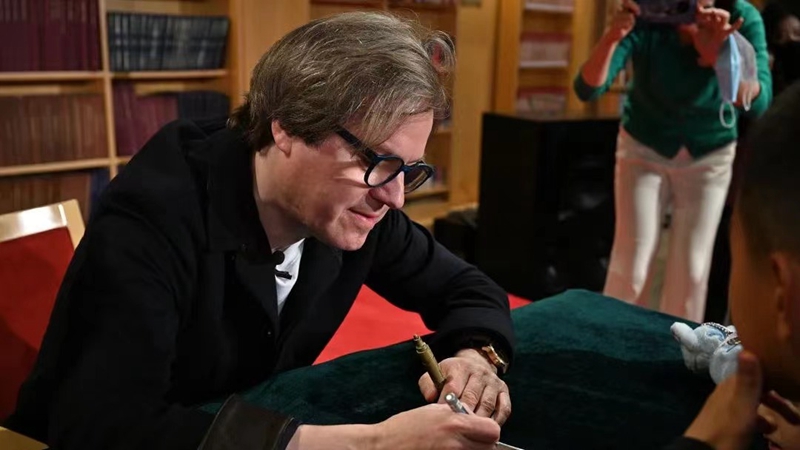
Jan Vogler had a busy schedule during his days-long visit to NCPA. He shuttled back and forth at the theatre from the concert hall to the rehearsal hall and from the NPCA Artist Salon to the Resource Centre for the Arts. On the way, he was often attracted to the magnificent architectural landscape of the theatre and the ingenious design full of inspiration. He took photos of the fine views one after another. He was impressed by the wonderful acoustics of the concert hall and amazed at the profound questions raised by Chinese music lovers; he was enthralled by the ancient Chinese traditional opera and developed a keen interest in the modern Chinese art. Despite great differences in national customs, we can share feelings and keep friendship forever under the same sky through cultural exchange and mutual learning.
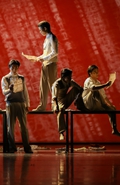 Repertoire
Repertoire
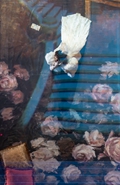 Films
Films
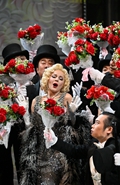 Videos
Videos
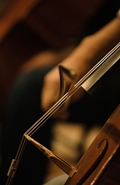 Podcast
Podcast
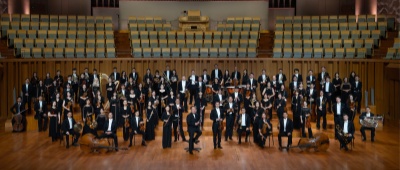 China NCPA Orchestra
China NCPA Orchestra
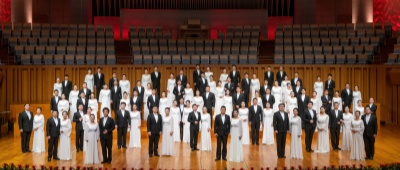 China NCPA Chorus
China NCPA Chorus
 NCPA Resident Singers
NCPA Resident Singers
 NCPA Drama Ensemble
NCPA Drama Ensemble
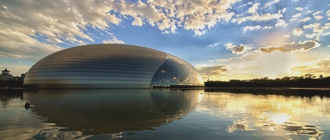 Buildings
Exhibitions
Buildings
Exhibitions
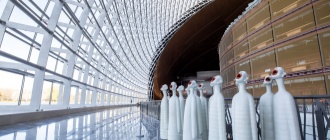 Opening Hours
Services
Opening Hours
Services
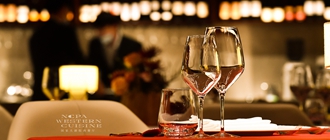 Western Cuisine
NCPA Café
Arts Gifts
Western Cuisine
NCPA Café
Arts Gifts







